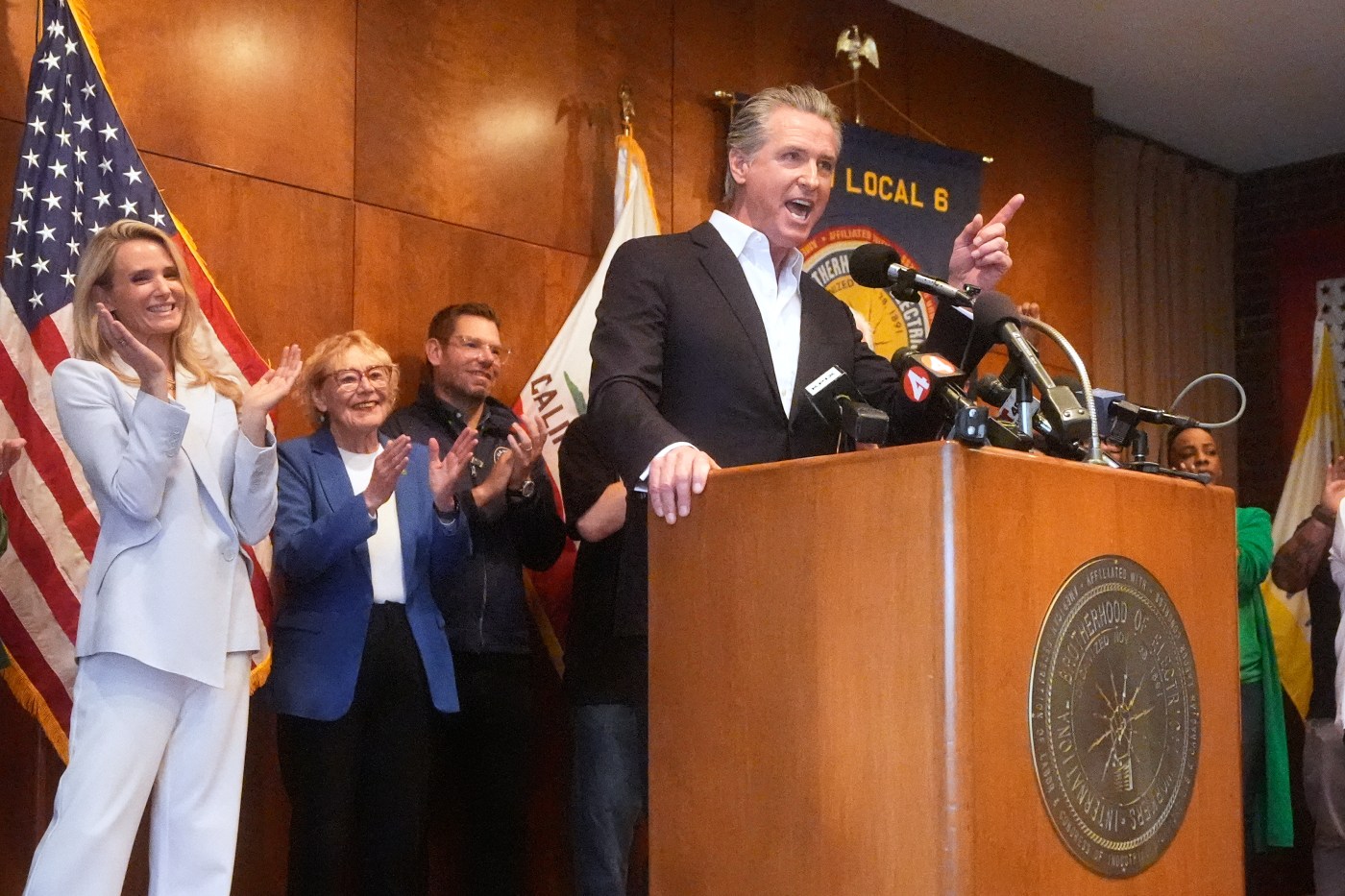Howie Carr: Time to gerrymander in New England!

**Gerrymandering and the New England Republican Representation Crisis**
A year ago, in the six New England states, 3,095,520 people voted for Donald J. Trump. That amounts to just under 41% of the overall electorate. Yet, New England has 21 of the 435 members of the U.S. House of Representatives. Would you care to guess how many of those 21 Congressmen are Republicans, representing that 41% of voters who supported the GOP for president in 2024?
The answer is zero.
Democrats, with 59% of the voters, control 100% of the 21 seats. Republicans, who make up 41% of the voters, get zero percent of the seats. Don’t Democrats claim to believe in diversity, equity, and inclusion (DEI)? How is effectively gerrymandering 41% of New Englanders into political oblivion a celebration of DEI?
—
### The Case of Maine’s Second District and Ranked-Choice Voting
I bring this up now following the recent decision by Maine Democrat Rep. Jared Golden not to seek reelection. Since 2018, he has represented Maine’s Second District—the northern part of the state—which is basically a Republican district.
How Republican is the electorate there? They voted for Trump in 2016, 2020, and 2024. In Maine’s unique system of allocating electoral votes by Congressional district, the Second District gave Trump his only electoral votes in New England in the last three elections. Last year, Trump carried the Second with 53.5% of the vote.
So why does this heavily Republican district have a Democrat Congressman?
The answer comes down to three words: ranked-choice voting.
—
### Understanding Ranked-Choice Voting
Democrats have many ways to influence elections—not just outright fraud like mail-in ballot abuses, ballot harvesting, or illegal voting. Ranked-choice voting is another tool in their arsenal.
Here’s a brief explanation: Ranked-choice voting involves counting votes multiple times, redistributing preferences until a candidate reaches a majority. This process can allow a candidate who wasn’t initially the frontrunner to eventually win by consolidating second- and third-choice votes.
The best description of ranked-choice voting might be found in the 1948 movie *Key Largo*, where Edward G. Robinson’s character, Johnny Rocco, a corrupt gangster, says:
> “Get my boys to bring the voters out. And then count the votes over and over again ‘til they added up right and he was elected.”
That’s essentially what happened in Maine.
—
### The 2018 Election: How Golden Slid In
In 2018, Jared Golden ran against GOP Rep. Bruce Poliquin. The Democrats knew they couldn’t beat Poliquin outright, so they pushed ranked-choice voting.
On election day, Poliquin actually defeated Golden by 2,000 votes. But the Democrats inserted two other candidates, splitting the vote enough for Poliquin to fall short of a majority.
That opened the door for Democrats to continue “counting the votes over and over again” until Golden was declared the winner—not just ending Poliquin’s career but the last Republican’s in New England.
Since then, Golden has managed to hold on, supported by tens of millions in dark, out-of-state funds. In Washington, he follows Nancy Pelosi’s lead, but back home in Maine, he presents himself as a “real Mainer.” This strategy worked—until it didn’t.
—
### The Shifting Tide in Maine Politics
Democrats in Maine, like their counterparts elsewhere, chase the latest political trend—even if it’s increasingly extreme. Take their recent Senate candidate, Graham Platner, a self-proclaimed “working-class” candidate who went to the elite Hotchkiss School and sports a Nazi tattoo. It’s no surprise that Platner is now leading incumbent Democrat Janet Mills by 30 points.
From Golden with his tattoos to Platner’s extreme stances, Democrats have embraced radicalism as the new normal. And as Mills and Golden face internal party challenges, the political pressure mounts. Golden was recently facing a primary challenger from the left and on the Republican side, former Gov. Paul LePage—a popular figure who consistently wins the Second District—threatened his seat.
Golden lagged five points behind LePage in polling and ultimately decided not to seek reelection. The “revolution eats its own,” and Golden’s exit underscores the cost of political gerrymandering and intra-party strife.
—
### A Broader Pattern: Gerrymandering Across the Country
Once the Schumer shutdown ends, expect the regime-controlled media to shift their focus back to so-called “Republican gerrymandering” in states like California and Illinois.
In California, Republicans hold only 9 of 52 Congressional seats (17%), although Trump got 38% of the vote in 2024. Despite this, Democrats spent tens of millions redistricting Republicans down from 9 seats to 4 (7%).
Similarly, in Illinois, where Trump earned 43.5% of the vote, Republicans hold only 3 of 15 House seats (17%). Even Abraham Lincoln would be hard-pressed to survive such political manipulation.
—
### Final Thoughts
Remember these numbers the next time a Democrat talks about threats to democracy. It’s “one person, one vote”—unless, of course, you’re a Republican. Then your votes may never count.
Gerrymandering and election mechanisms like ranked-choice voting have effectively disenfranchised millions of voters and reshaped the political landscape to favor one party—at the expense of true representation.
—
*The fight for fair elections and genuine democracy continues.*
https://www.bostonherald.com/2025/11/07/howie-carr-time-to-gerrymander-in-new-england/







